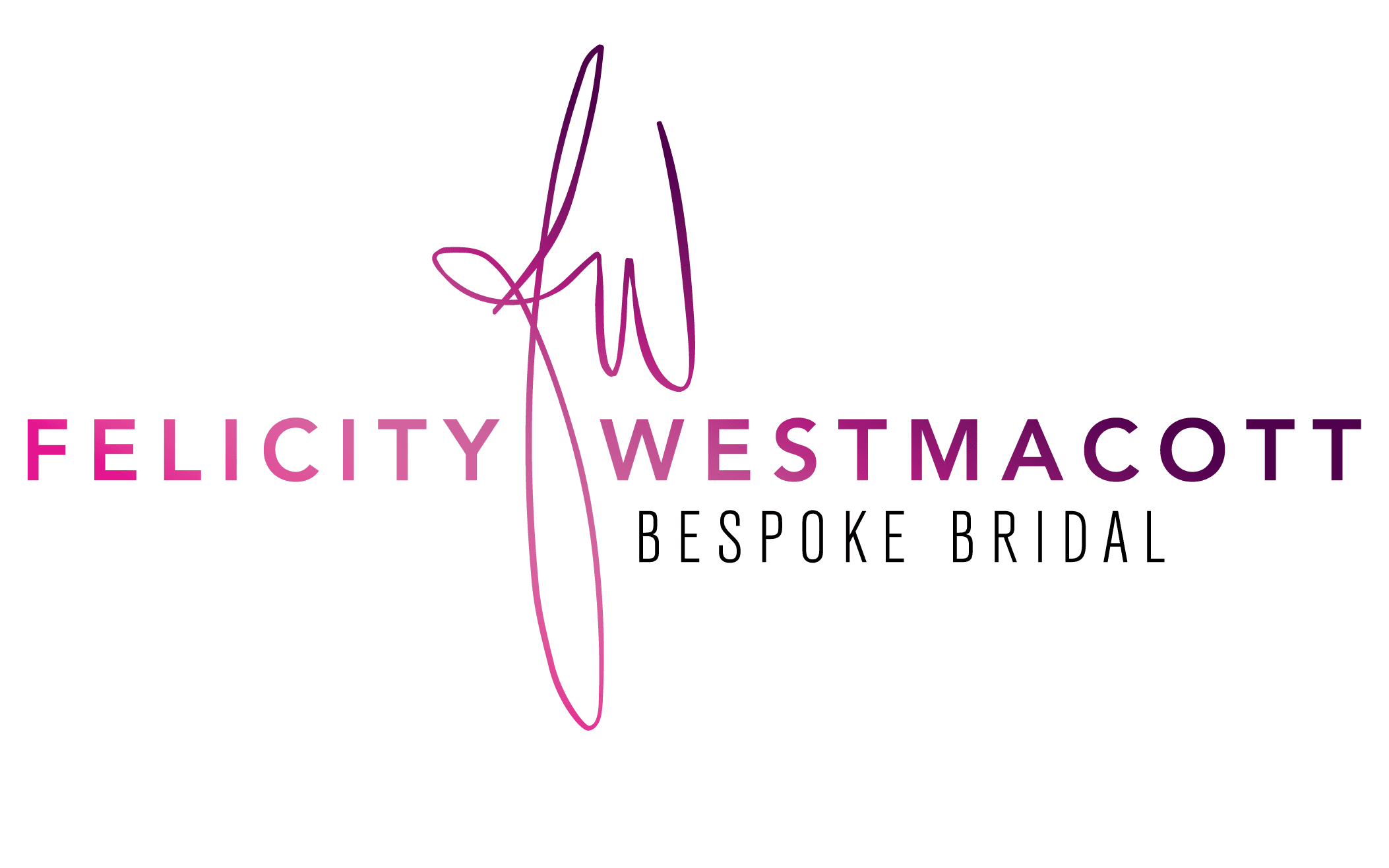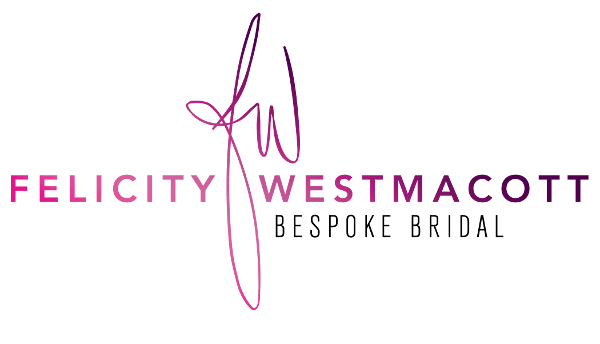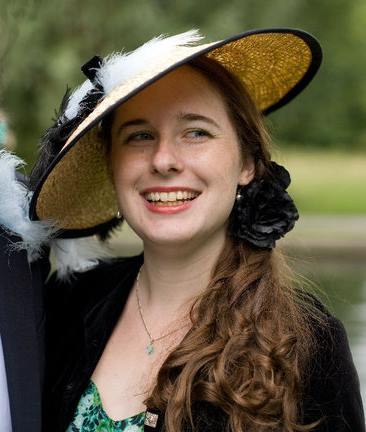If knowing whether or not you can dye your wedding dress black (or any other colour) is a deciding factor please see my advice. Unfortunately dyeing an already made garment is very difficult. It’s not impossible but it is very risky and the chance of a ‘perfect’ result is low. I cover ways things can be achieved in another blog post so don’t despair! Here I talk through the risks and the ways things might go wrong when attempting to dye your wedding dress black, so you can make an informed choice.
Please see the other linked articles too to answer questions like, ‘can I dye my wedding dress at home?‘ and ‘how much does it cost to dye a wedding dress?’
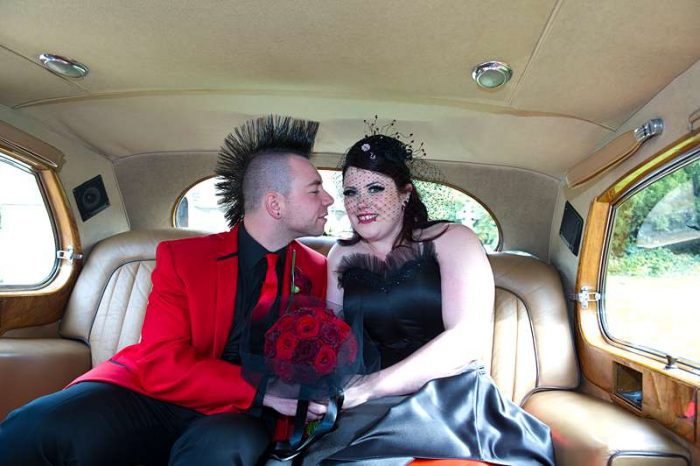
Dark colours are difficult
It is difficult to dye your wedding dress black or any other dark or jewel bright shade. Light and pastel colours are more easily achieved. Wedding dresses are big and so difficult to stir in the dye pot. The dyed colour may end up uneven or patchy and this will show more with a dark colour than a pale one.
The dye chemicals available to me as a professional are better than the box and machine dyes available to the public for home dyeing but still won’t reliably produce really deep dark black. You will get a really dark green/blue/red wedding dress at best or a deep grey if you use a home dye kit. For really deep, dark night-black you need to buy a dress made from black fabrics that were dyed industrially before the dress was cut out and sewn.
When fabric is dyed in a factory they have an industrial set up. They can use dye chemicals that would be dangerous to use in a home or artisan dye-room; and they have huge dye vats to safely manipulate fabric in very hot liquid.
The risks of dyeing a wedding dress
For more in depth notes on these risks see this article
- Your wedding dress might shrink or come out a different shape it went in – I need to use very hot water that that isn’t good for delicate fabrics.
- Different fibre types all need different dye chemicals to change colour: natural fibres (eg cotton, silk, wool, linen) need different chemicals to synthetic fibres (polyester, nylon, viscose and acetate) . Your dress is probably made of more than one type of fabric. This means dyeing it with the dye for the main silk fabric will leave your polyester lace still pale.
- Home dyeing risks: Your wedding dress is probably too big to be dyed in a saucepan at home. And most wedding dresses are not machine washable, so dyeing it with washing-machine dyes would not be advisable.
- Getting an even colour on big garments is very difficult unless you find someone with a huge dye vat (twice the size of a bath) so the dress can be stirred easily during dyeing.
- Colour matching is difficult so not getting exactly the shade you hoped for is a risk.
- Splashes happen – working with lots of fabric and big vats of hot water isn’t easy.
What are the alternatives to dyeing my wedding dress black?
If buying a dress that was made in black fabrics to begin with isn’t an option, if you really need to dye the dress you already have black, you will have to accept the risks above or consider an alternative.
Dipdye:
Dyeing part of your dress is easier than the whole thing as you don’t need such a large dye vessel.
Spraying:
You can spray paint or air brush your dress, though the colour won’t be as deep as a proper hot-wet-dye technique. The advantage is you can be very specific with where the colour goes, creating fades or colouring some parts of the dress and not others if you wish.
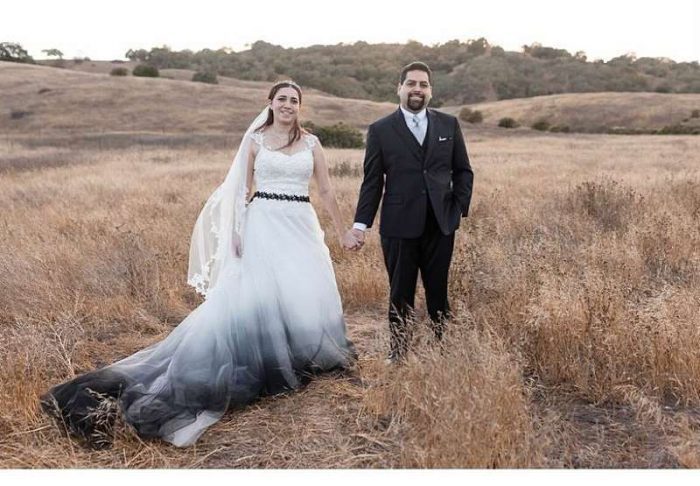
Adding a layer:
Have a skilled seamstress add a layer of black fabric to your dress. This could replace a layer in your dress or be additional. Obviously if there are design details on the surface they will need to be moved or accounted for.
I make tulle overskirts that can be worn over any wedding dress. They are all custom made to fit exactly over your dress size and train length. They are usually sprayed with dipdye colour but a plain black one (or any other colour) would be effective too!
Buy a black wedding dress to start with
This is by far the best way to get a good, black dress and avoids all the risks from dyeing. There are lots of designs in all styles available. I can make you one from scratch, see my bespoke FAQ to learn more, you can order a design from my Etsy shop in any colour, or check out these off the peg options.
Will you dye my wedding dress?
Probably not. I do offer my dipdye service for any colour added directly to the hem of tulle or lace dresses but dyeing a whole dress with the wet dye process isn’t my specialism. And dyeing a dress black is especially fraught with difficulty due to all the risks listed above.
Recommedations
If you are in the US this company do provide a professional Bridal dye service for all over and dipdye effects. I have not had personal experience with them but looking at their website they say all the right thinsg and I would be confident to trust a dress to them and their experience.
